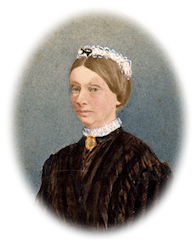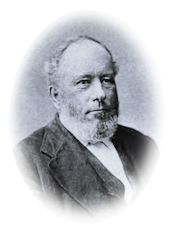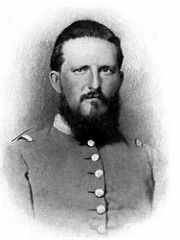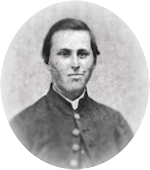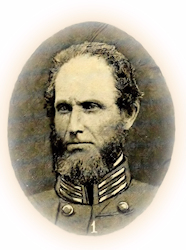Friday, Dec. 28th, 1862, till Jan. 1st, 1863. Received and answered home letters. Kept at my old duties of Com. Sergt., not very arduous. Delos went home, having received a telegram that his presence was needed there. They had a real family gathering of friends from east, south and west. Came back the 31st and made us most homesick. Wrote a letter, a good one too, to Will, intending to send it by C. G. F. but he did not let me know when he left, so I destroyed it, getting too old.
Well, the year as a whole has passed much more rapidly and pleasantly than I anticipated a year ago. To be sure I never could be satisfied to spend a life in such service, still I have rather enjoyed the life I have been leading, because a sense of duty prompted me to it. My sufferings have been light indeed.
Of one thing I am sure. Had I spent the year at home, though I would have enjoyed it much, I would have been a poor, frail, sickly boy longing for death to come quickly and suddenly. Nearly so I felt January last. I hoped that health would come quickly or that by the fate of war my life would be sacrificed. A lingering death I have always had a horror of. Even now did I know that my fate were to die of consumption 8 or 10 years hence or to be shot in battle in six months, I should prefer the latter I believe. In fact, I have no desire to live a frail dependent boy any length of time. I presume this feeling has influenced me greatly in going upon so many expeditions, when I have been where I need not have gone at all. I have felt that this time I can go as well as any one else and if I fall, the world loses nothing, if somebody else fell, the contrary. Still I never went where bullets were flying but I thought seriously of my past life, my preparation to die. Sometimes there would be a hesitation, but only for a minute.
February, Independence.
March, Platte City, Fort Scott.
April, Carthage, Horse Creek, Neosho, Cowskin Prairie.
May, Fort Scott, Tola.
June, On the march to Indian Territory.
July, Cabin Creek.
August, Fort Scott, Lone Jack.
September, Springfield, Mo.
October, Sarcoxie, Grandby, Newtonia, Coalbed.
November, Arkansas, Pea Ridge, Bentonville, Maysville, The Mills, Osage Springs, Jones Mills, Fayetteville, Tannery, Boonsboro, Boston Mountains, Cane Hill.
December, Fort Scott, Leavenworth, Ohio.
Columbus, Ohio
Jan. 1st. In Camp Chase. Charlie went home and D. R. H. returned to camp. Saw D. R. and John Devlin. Brought a note and stick of candy from home.

